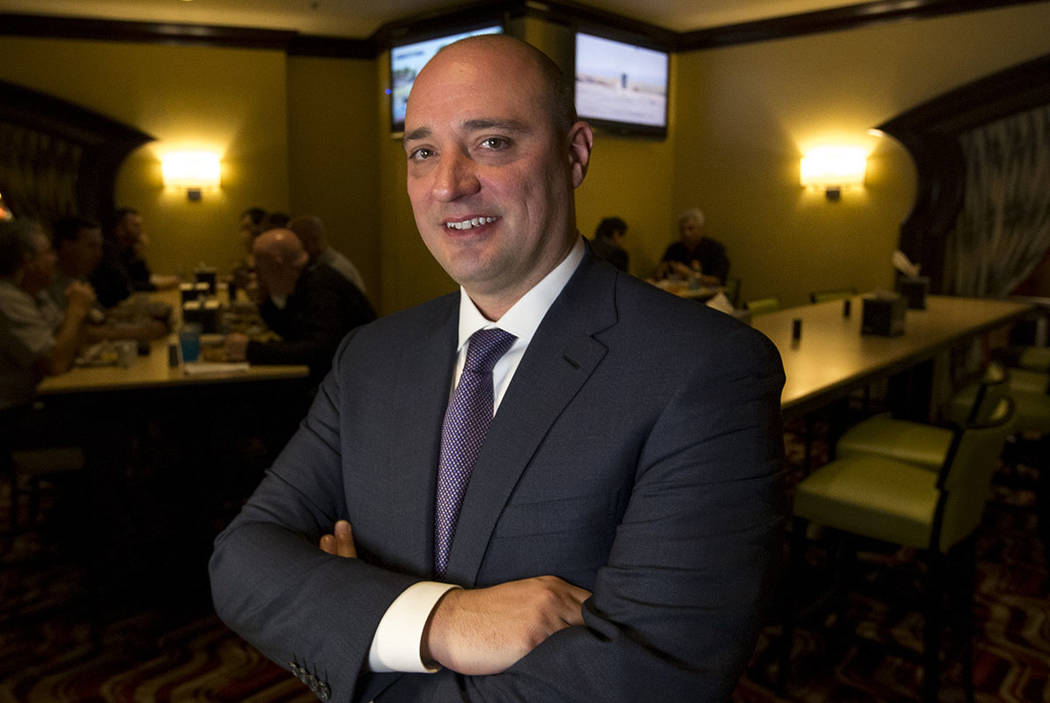Expensive Wynn monitor oversees problems already solved
Bless the Massachusetts Gaming Commission for trying to do the right thing, but it seems the hiring of an independent monitor to watch the Wynn Resorts Ltd. human resources department’s handling of sexual harassment complaints is a little late.
And expensive.
The commission last week ratified the hiring of a team of five attorneys from Washington-based Miller &Chevalier Chartered to serve as a monitor to ensure Wynn is in compliance with the commission’s orders on enforcing harassment policies.
In a memorandum to the commission, attorneys said they will “review the company’s design, implementation, enforcement, and effectiveness of human resources policies and procedures, with particular attention to communications and trainings on those policies and procedures.” They’ll also “evaluate and test the company’s internal reporting and communication channels and ensure that the response and investigation of such reports are independent and impartial.”
The hiring of the monitor, ordered in April, is in response to things that happened over three decades while Steve Wynn served as chairman and CEO of Wynn Resorts.
When the news media reported allegations against Steve Wynn — and he’s denied ever harassing anybody — he stepped away from the company, divested himself from ownership and cleared out his things from a villa in which he lived at the Las Vegas resort.
Company executives found to have looked the other way when the allegations surfaced were removed from the company. Board members who were friendly with Steve Wynn left and were replaced with independent members, including three high-profile women. One of the most respected executives in the gaming industry, Phil Satre, was named chairman of the board. Matt Maddox was elevated to CEO.
A new human resources manager was hired. Harassment reporting policies were dramatically revamped.
It’s a whole new company today from what it was two years ago.
Even after agreeing that Wynn Resorts was suitable to hold a gaming license in Massachusetts just in time for the June 23 opening of Encore Boston Harbor — and fining the company and Maddox a record $35.5 million — the commission decided to select a monitor to watch Wynn.
It’s like installing a security system at your house after all the household goods have been stolen.
And it’s an expensive security system. The five attorneys’ billable rates total $3,625 an hour. The Miller &Chevalier team indicated the first six months of the monitorship would cost Wynn Resorts — yes, it’s paying for it, not the commission — between $575,000 and $775,000 for between 850 and 1,150 hours of review of Wynn policies.
A commission memorandum indicated that should be the most expensive phase of the monitorship.
“Barring any anomalies, this first six-month period during which the baseline assessment will be conducted is expected to be the most intensive period of the monitorship,” the memo said. “After the first six months, a similar level of billable activity and spend is anticipated on an annual basis. Though not the highest or lowest cost relative to the other bidders, the review team concluded that the fiscal terms proposed by Miller &Chevalier were reasonable for the quality of services to be provided.”
Gaming industry analysts haven’t weighed in on how they assess the operation of the company as a result of the monitor being in place. Nevada Gaming Control Board Chairwoman Sandra Morgan indicated local regulators may review some of the reports generated by the monitor, but they aren’t viewing operations any differently.
So why a monitor?
It seems that’s the way regulators approach issues in Massachusetts. There are other examples of how third parties were hired at a company’s expense to oversee public policy issues.
In 2018, the Massachusetts Attorney General’s Office required a monitor when Beth Israel Deaconess Medical Center and Lahey Health System merged to form the Beth Israel Lahey Health System. In 2012, the Massachusetts Department of Public Utilities approved a merger between Northeast Utilities and NStar with the help of a monitor.
That might give Wynn some comfort, understanding that a monitor is the norm for the Bay State, but it’s clear the commission hasn’t reached a comfort level with the gaming industry that its Nevada counterparts have.
That’s one of the differences between the gaming industry of Nevada, where regulators tend to trust casino companies — trust built from an over 50-year relationship — and Massachusetts, where leaders are learning how the business works.
Wynn paid the price for violating that trust in Nevada with a record $20 million fine here.
Contact Richard N. Velotta at rvelotta@reviewjournal.com or 702-477-3893. Follow @RickVelotta on Twitter.





























